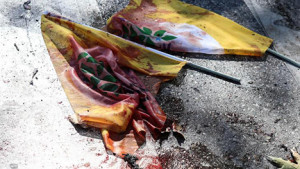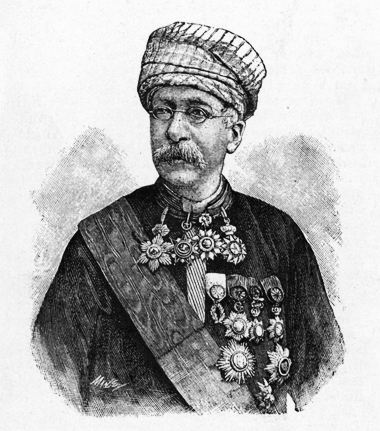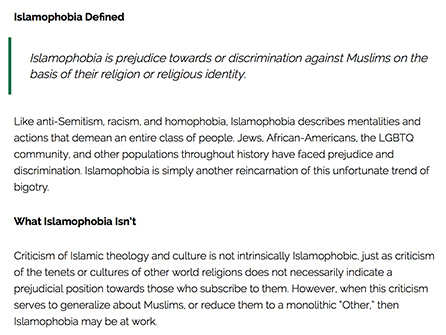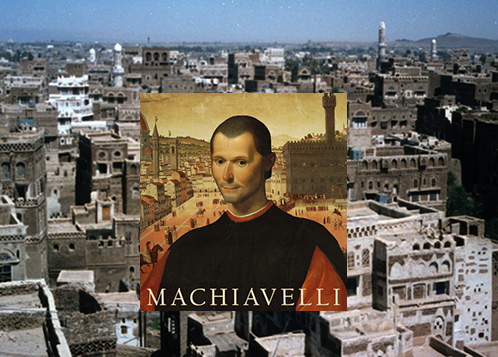Category Archives: Journalism and Media
Armageddon after Ankara

The Ankara bombing: Presaging the end of the Turkish Republic?
What we have witnessed in the last two years, culminating in the horrible scenes of 10 October in Ankara, is the end of the Turkish Republic as we know it. A commentary by Umut Ozkirimli
There is something fundamentally wrong with the journalistic coverage of the twin blasts at a peace rally in Ankara – the deadliest terror attack on Turkish soil – which left more than a hundred people dead (128 according to the unofficial tally of the People′s Democracy Party, HDP), several hundred wounded and an almost ″anomic″ country behind. As if writing a detective story or crime novel, most commentators begin by asking the ″who″ question, religiously following the basic rules of the genre and creating suspense for the sensation-seeking audience – after all, the killer is usually unknown until well after the initial investigation is completed.
This is the burden of Simon Tisdall′s otherwise insightful commentary on the Ankara attacks in ″The Guardian″ which points to the Islamic State, the ultra-nationalist Grey Wolves or other right-wing groups within Turkey′s security apparatus as the most likely culprits. One might add, as the caretaker Prime Minister Ahmet Davutoglu did, the PKK and the left-wing DHKP-C to this list, not to mention foreign intelligence agencies for the conspiracy-minded. Yet the question is redundant, if not entirely spurious, considering the immediate and the broader context in which the bombing took place.
Continue reading Armageddon after Ankara
Abou Naddara Collection website
Welcome to the Abou Naddara Collection website!

This website offers the complete newspapers published by the Egyptian nationalist James Sanua (يعقوب صنوع, 1839-1912) from 1878 to 1910. In addition, formerly unpublished manuscripts by the same author, articles from newspapers of the period about the journalist and his oeuvre, as well as the decorations he received are also available. Most of the material was directly scanned from the originals published at the turn of the 19th to the 20th century, and therefore contains an ample variety of magnificent and colorful lithographs.
It was financed by the Cluster of Excellence “Asia and Europe in a Global Context†of Heidelberg University and realized in a collaboration of Project B1 “Gauging Cultural Asymmetries: Asian Satire and the Search for Identity in the Era of Colonialism and Imperialism†and the Visual Resources Team of the Cluster’s Heidelberg Research Architecture.
Commentary Hell

We moderns devour news as if it were a staple food. Gone are the days when one sat down for coffee in the morning with a daily newspaper. There are still newspapers of every flavor, but news is now the product of digital media. And the news cycle grows shorter all the time. During the American Civil War it might take weeks for reports of battles to be reported in the papers. The telegraph and telephone made the news flow a bit faster, but until digital formats news was always at least a day old, if not more. Now many events are instantaneous. Mobile videos of police brutality go viral in minutes. And the sheer number of news and social media sites could easily fill up surfing all 24 hours of the day.
In the old days newspapers were selective in publishing letters to the editor. Really nasty retorts and profanity rarely made it into print. But most sites today leave space for comments from anyone. The results are pathetic. Rational discussion of issues raised is almost non-existent. Curses and lunatic projections are common. I was reading an Al Jazeera article entitled “How is ISIL expanding?†Al Jazeera disclaims all liability for anything posted as comments and well they should.
Below are some of the comments posted (apart from the spam that have nothing to do with the article). The mentality of some of the individuals matches their inability to write in English. Prejudice über alles in cyberspace:
Start cooking the popcorn as sunni and Shia showdown  looms on the horizon. ……All muslime countries  need to be destabilised and turned  into flea infested wastelands. CIA, MOSSAD  and RAW collaboration achieving excellent results. Continue reading Commentary Hell
An Impish Desire for Imperial Déjà Vu

An Impish Desire for Imperial Déjà Vu
Daniel Martin Varisco, MENA Tidningen, May 27, 2015
A recent online commentary by Robert Kaplan for Foreign Policy displays the provocative title: “It’s time to bring imperialism back to the Middle East”. The punch line surfaces in the final paragraph: “Imperialism bestowed order, however retrograde it may have been”. Retrograde? How about brutal?
Let’s see: Mussolini made the trains run on time; Hitler brought Germany out of the humiliation of a World War I defeat; Genghis Khan lengthened the Silk Road by slaughtering just about everyone along the way. So let’s bring back the Shah of Iran, Saddam Hussein, Colonel Qaddafi and all the recently demoted dictators so we can have “order†again, the kind of “order†which is imperially blessed and apparently serves American interests.
Kaplan’s view of Middle Eastern history is about as top-down and lop-sided as you can get. Take the Sublime Porte, for example: “For hundreds of years, Sunnis and Shiites, Arabs and Jews, Muslims and Christians, in Greater Syria and Mesopotamia had few territorial disputes. All fell under the rule of an imperial sovereign in Istanbul, who protected them from each otherâ€, he writes. Really? What romance novel has Kaplan been reading? Was there such love for the Ottoman sultans that no ethnic group ever complained? Did all these subjugated people sleep peacefully at night knowing that the Janissaries would protect them from each other? But why stop with the Ottomans?! The caliphs in Abbasid Iraq must have been all made for a Disney Aladdin movie and their mercenaries nothing short of angels? And what barbarian would have dared speak against the glorious Pax Romana of the Caesars? Forget the out-dated Sermon on the Mount. According to Kaplan, blessed are the Machiavellian despots for only they can enforce peace in the name of order, at least in what used to be called the Holy Land. Continue reading An Impish Desire for Imperial Déjà Vu
The Bridge over Islamophobia

John Esposito at the Alwaleed Center for Muslim-Christian Understanding in the Walsh School of Foreign Service has just provided a unique website to chart the pace of islamophobia in the media,among the general public and in academe. Check out his new site here.

align=”center”>
This stupidity needs to end

This stupidity needs to end: Why the Atlantic & NY Post are clueless about Islam
Pundits claiming that ISIS is emblematic of Islam ignore the intellectual traditions at the heart of the religion
by H.A. Hellyer, Salon, Februrary 20, 2015
This week, President Obama hosted a summit on countering “violent extremism,†where he received criticism from some on the rightwing over his refusal to call such violence “Islamic.†American media outlets, particularly the Atlantic and the New York Post, have struck a similar chord of late. All of this happens against a rather poignant backdrop: Only a few days ago, ISIS released a video showing the killing of 21 Coptic Egyptians in Libya. The group expressed what it considered to be Islamic justification for its actions. Long after the summit, specialists in the field of counter-extremism will continue to ask the question: Is ISIS actually representative in some way of Islam? And what, really, is the relationship between the group that calls itself the “Islamic State†and the world’s second largest religion?
There will be those that will insist that ISIS has nothing to do with Islam or religion in general — that ISIS is primarily a social and political phenomenon, bereft of ideology entirely, or simply using Islam as a superficial justification. Counterterrorism studies indicate that for very many people in the broader radical Islamist universe, non-ideological factors certainly play magnificently important roles. At the same time, it is also the case that for radical Islamists, an ideological component not only exists, but is crucial in understanding their world views. In some shape or form, for ISIS supporters, religion certainly plays a role. But what religion, precisely?
The easy answer is to say “Islam†– but it is also a rather lazy answer. There are around 1.5 billion Muslims around the world. The vast, overwhelming majority of them, needless to say, are not members of ISIS — and, in fact, Muslims actually make up the majority of ISIS’s victims, its most active enemies on the battlefield, and its most prominent detractors. Continue reading This stupidity needs to end
Lessons in Yemeni Machiavellianism

by Samaa Al Hamdani, Fikra Forum, February 20
[For this article in Arabic, click here.)
Last September, a rebel militia known as the Houthis successfully captured large portions of Yemen’s north and its capital, Sana. A few months later, in January 2015, President Abdu Rabu Mansour Hadi and his government resigned following clashes with the Houthis. By February 10, diplomatic missions in Sana’a had evacuated the country to protest the “illegitimate Houthi takeover.†Overnight, the Houthis became Yemen’s new rulers, but very little was known about them.
The enigmatic Houthi movement transformed from a Zaydi revivalist group in the early 1990s, to a rebel movement in the mid-1990s, to an enemy warring against the Yemeni state in the early 2000s. Following the revolution in 2011, the Houthis secured 33 seats in the National Dialogue Conference (NDC), because they had significant local influence and were considered victims of the former regime. The Houthis were granted a specialized committee in the NDC solidifying them as an influential political player. However, as soon as the dialogue concluded, the Houthis lost faith in the internationally backed political transition. Since then, the Houthis – led by Abdul-Malik al-Houthi – have employed Machiavellian tactics to gain influence in Yemen, taking advantage of the dismal performance of Hadi’s National Unity Government to seize territory and power.
In September 2014 Hadi lifted fuel subsidies, which angered much of the Yemeni population and provided an opening for the Houthis. Cleverly, the Houthis sided with the people against the government; thereafter, within six days, they seized the capital. Months later, on February 11, they mobilized mass protests to overshadow any activities by the opposition. It is likely that a Houthi-led protest will take place on March 18, the anniversary of the “Friday of Dignity,†during which 56 protestors were killed in 2011. By hijacking public rallies, the Houthis aim to silence the opposition and, in this specific case, avoid criticism by the Gulf Cooperation Council and the United Nations Security Council.
Continue reading Lessons in Yemeni Machiavellianism
